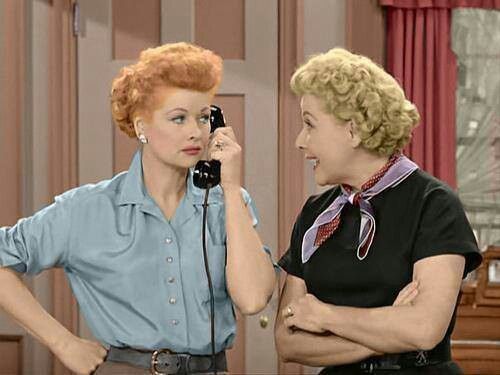
When I Love Lucy first premiered in 1951, American television was dominated by familiar archetypes: the devoted housewife, the strong breadwinning husband, and the carefully preserved image of the “perfect” suburban family. Then came Lucille Ball — not only as the zany Lucy Ricardo, but as a woman who transformed what it meant to be female on the small screen. Through her comedy, business acumen, and groundbreaking production role, Ball reinvented the representation of women in ways that still resonate today.
Lucy Ricardo: Comedy Against the “Perfect Housewife”
On-screen, Lucy Ricardo was far from the polished homemaker that American culture of the 1950s idealized. She was clumsy, ambitious, mischievous, and often desperate to break into show business. Her antics — from stomping grapes in Italy to scheming her way into Ricky’s nightclub act — directly challenged the quiet domesticity expected of wives at the time. By making audiences laugh at her failures and root for her stubborn determination, Lucy Ricardo became a subtle yet powerful critique of gender roles in postwar America.
Lucille Ball as a Trailblazing Businesswoman
Off-screen, Lucille Ball made history as one of the most powerful women in Hollywood. Together with her husband Desi Arnaz, she co-founded Desilu Productions, which not only produced I Love Lucy but also went on to create television milestones like Star Trek and Mission: Impossible. After buying out Arnaz in 1962, Ball became the first woman to run a major Hollywood studio — a feat that positioned her as a pioneer in a male-dominated industry. At a time when women were rarely seen as decision-makers in entertainment, Ball built a business empire that changed television forever.
A Legacy That Inspired Generations
The impact of Lucille Ball extended far beyond her era. She cleared a path for female comedians and creators who came after her, from Mary Tyler Moore, who built her own brand of workplace comedy in the 1970s, to Tina Fey, whose sharp wit and leadership on 30 Rock echoed Ball’s dual role as performer and producer. Today, every woman who stars in, writes for, or runs a comedy series owes part of that opportunity to the doors Lucille Ball helped open.
Reinventing Women on Screen and Behind the Camera
Ultimately, Lucille Ball’s reinvention of women on television was twofold: she expanded what a female character could be — messy, ambitious, funny, and unapologetically flawed — and she demonstrated that women could also lead behind the camera, shaping the business of television itself. Her dual legacy, both creative and corporate, challenged not only gender stereotypes but also the very structures of Hollywood.
Seventy years later, I Love Lucy remains more than just a sitcom. It is a reminder that Lucille Ball redefined television’s vision of women — proving that laughter could be revolutionary, and that power could come in the form of a red-haired comedienne who refused to stay in the kitchen, on-screen or off.